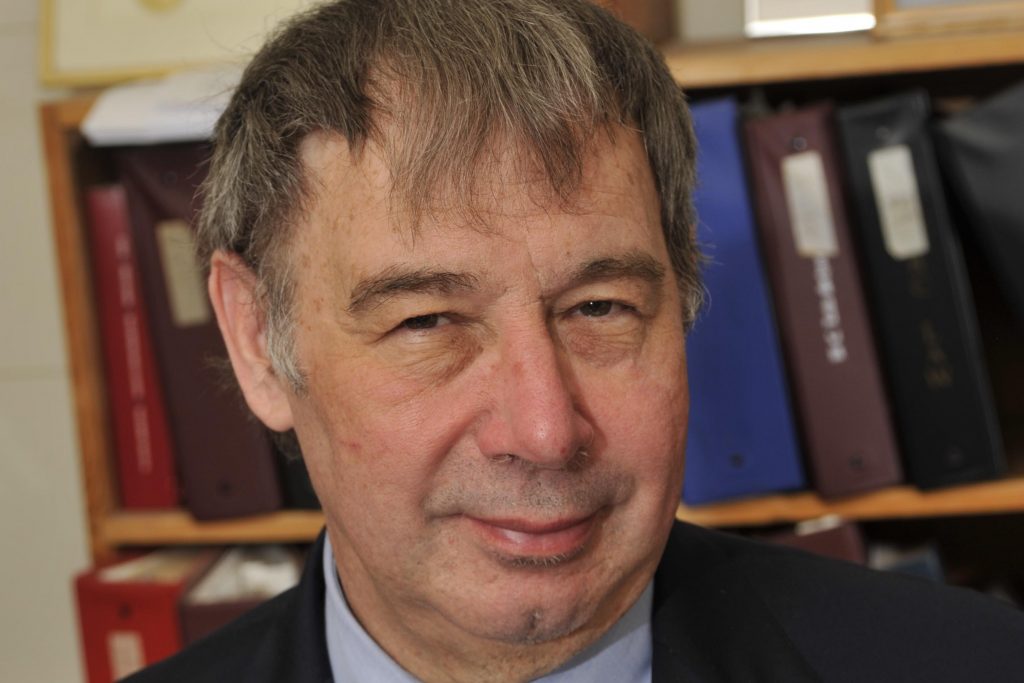BC Law, in partnership with the School of Theology and Ministry, held a conference titled “Catholic Social Thought in the Era of Pope Francis: Roots on the Works of Saint Alberto Hurtado” on October 22 and 23. The international gathering was sponsored by the Institute of Liberal Arts of Boston College and addressed topics involving Hurtado as well as social Catholicism in general. Along with BC Law Dean Vincent Rougeau and Professor Judy McMorrow, participants hailed from the US, Canada, Argentina, Spain, Chile, and Poland. Notably, the first English translation of a work of Saint Alberto Hurtado, Social Morality, was launched at the conference, translated and edited by BC Law Professor Scott FitzGibbon and visiting scholar Fernanda Soza. The editors hope that the publication “can be the starting point for new research on [Hurtado’s] social thinking and the influences of a whole stream of Christian social thought that began at the end of the 19th century in Europe, but which continues to resonate until today in the teachings of Pope Francis,” according to an article by the Catholic University in Chile.
Here is a summary of some of the recent presenters and events:
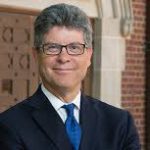
The Federalist Society at BC Law held a discussion October 23 between Professor Kurt Lash of the University of Richmond Law School and BC Law Professor Ryan Williams about the struggle that led to the ratification of the 14th Amendment, which addresses citizenship rights and the equal protection of the laws. The amendment has garnered new attention in the midst of social upheavals over citizen birthright and immigration over the past two years.

The American Constitution Society invited Eric Segall, a Georgia State law professor and renowned constitutional law expert, to discuss his newest book, Originalism as Faith. The book explores the history of Originalism and how it is often used as a pretext by judges to reach politically desirable results. Segall has served on the executive committee of the American Association of Law Schools section on federal courts and often speaks on constitutional law and the Supreme Court. He gave his BC Law talk on October 23.
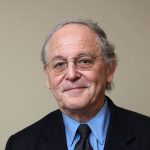
The Children’s Rights Group held a panel October 24 on Combating Child Abuse in Law. Students heard from lawyers who interact with victims of child abuse and neglect on both clinical and policy levels. The panelists were Jay Blitzman, first justice of the Lowell Juvenile Court; Professor Francine Sherman ’80, director of the BC Law Juvenile Rights Advocacy Project; and Nancy Baratta and Katrina Krywonis, managing director and staff attorney, respectively, of the Children and Family Law division of the Committee for Public Counsel Services.

A mock client-attorney meeting titled “What to Do When…A Space Company Wants (or Steals) Your Invention,” took place October 24 and was co-sponsored by the BC Space Law Society, Program on Innovation & Entrepreneurship, and the Intellectual Property and Technology Forum. In a hypothetical scenario, an invention is introduced to be patented while a Space Exploration company potentially infringes on the property rights of the pending patent. Proposed questions asked audience members to investigate if the patent was infringed and how the company should approach the patent holder for a licensing agreement. BC Law Professor David Olson and BC Biology Professor Thomas Seyfried along with Jason Wen, director of the Office of Technology Transfer and Licensing at BC, led the simulation.
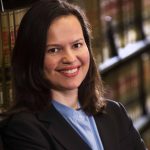
BC Law Professor Katharine Young introduced Ruth Rubio Marín, who presented “Reparations for Historic Institutional Violence: Learning from Transitional Justice?” as part of the Lowell Humanities Lecture Series at Boston College on November 1. Marín is a professor of constitutional law at the University of Sevilla and director of the Gender and Governance Programme at the School of Transnational Governance at European University Institute in Florence.
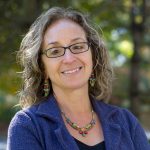
The Children’s Rights Group, in conjunction with SALSA, HHRP, MELSA, & ILS, invited a representative of the International Legal Foundation (ILF) to speak about the organization’s work building adult and juvenile defense services in countries emerging from conflict. The ILF is an international nongovernmental organization that provides defender services for the poor in areas such as the West Bank, Nepal, Tunisia, and Afghanistan. Their aim is to to protect the rights of those accused of crimes and to implement a system of equal access to justice by providing access to trained defense lawyers. ILF executive director and BC Law alumna Jennifer Smith ’98 spoke of her expertise in legal aid and experiences as a criminal defense lawyer, as well as her transition to developing international standards for quality legal representation for the poor who are accused of crimes. BC Law Professor Francine Sherman ’80 also spoke of her experience working with the ILF in the West Bank.
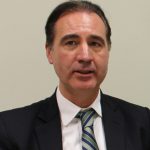
The Clough Center for the Study of Constitutional Democracy sponsored a talk on October 11 by Judge Eduardo Ferrer Mac-Gregor, the vice president of the Inter-American Court of Human Rights. He provided a history of the court, which, together with the Inter-American Commission on Human Rights, makes up the human rights protection system of the Organization of American States to uphold basic rights and freedoms in the Americas.

On November 13, Clough also hosted an examination of the US-China Trade War by BC law adjunct professor Yuanyuan Shen, a professor of law at Zhejiang University in Hangzhou, China, and an associate in research at the Fairbank Center for Chinese Studies of Harvard University.

The National Lawyers Guild held a “Collective Workspace Action in an Era of Resistance” panel November 14 in response to last summer’s Supreme Court rulings in Janus v. AFSCME and Epic Systems Corp. v. Lewis. The event explored the need to recognize the legal hostility that today’s workers face, as evidenced by the challenges to workers and unions posed by both rulings. Panelists further addressed the threat of Trump’s anti-union National Labor Relations Board and the countervailing efforts of workers who, by protesting and raising awareness through collective action, have been improving working conditions and resisting hostile courts and agencies. The panelists included Ira Fader of the Massachusetts Teachers Association and Hillary Schwab of Fair Work PC.
The Internet Law Society invited OpenLaw to discussion November 1 titled “Building the Future of Law.” OpenLaw is dedicated to liberating the contract-making process by harnessing the power of AI and block chain to create dynamic, smart contracts for its users. Their protocol is to build a technology stack where the next generation of lawyers can model legal agreements using code to decrease the costs of creating, securing, and generating binding legal agreements. The protocol documentation is intended to be a resource to build around existing open source language and integration application programming interfaces, according to their website.
The Law Student Association (LSA) Diversity Committee for Disability held a panel discussion on disability law and employment for Disability Awareness Month in October. The Black Law Students Association (BLSA) in November held a “Prosecutors of Color: Reshaping Our Community” discussion in which participants debated the role of prosecutors of color in society and their power to effect change in the criminal justice system. Also in November, BC Law’s Student Veterans Association held its annual Veteran’s Day program at which presenters spoke of their experiences while in the military to a packed house of students, faculty, and staff.
Compiled by Isabelle Bauer


